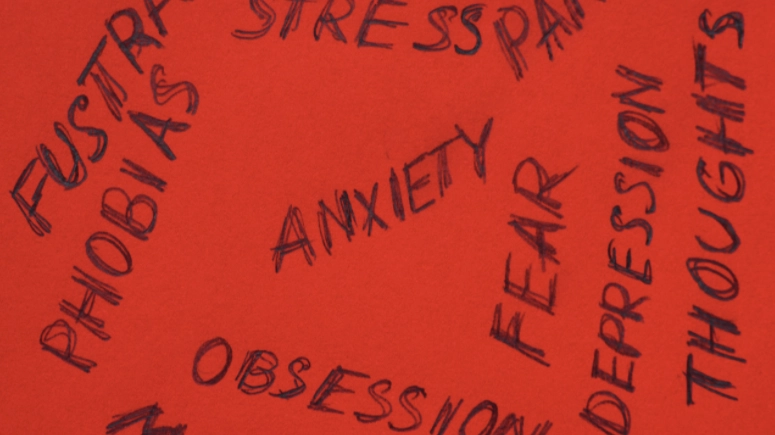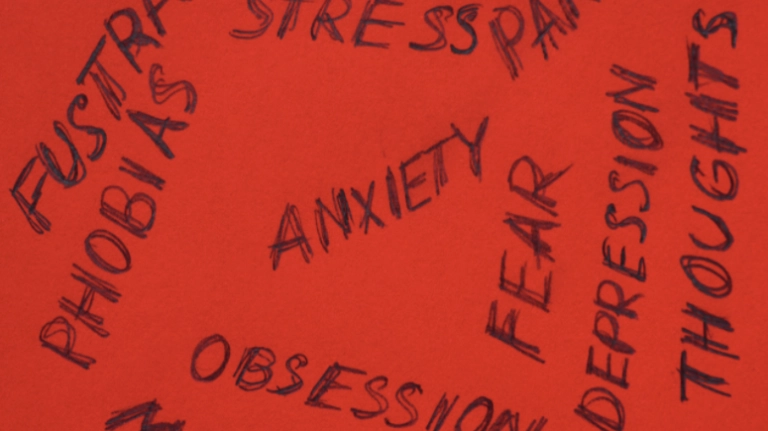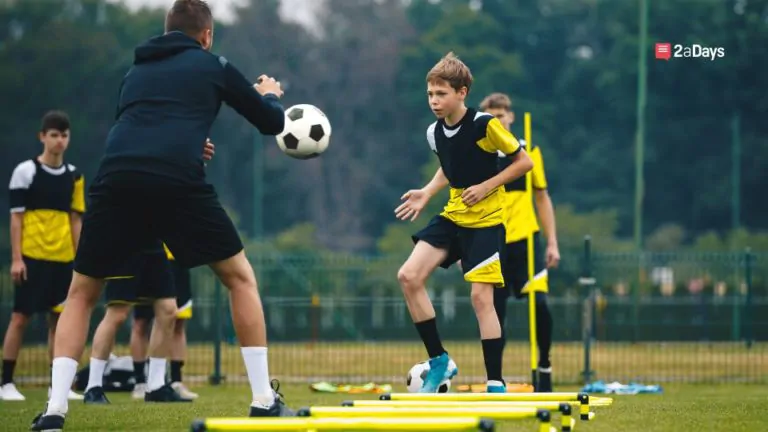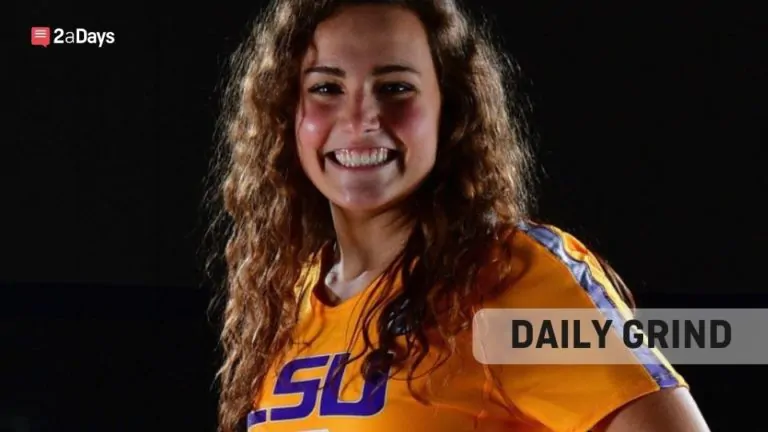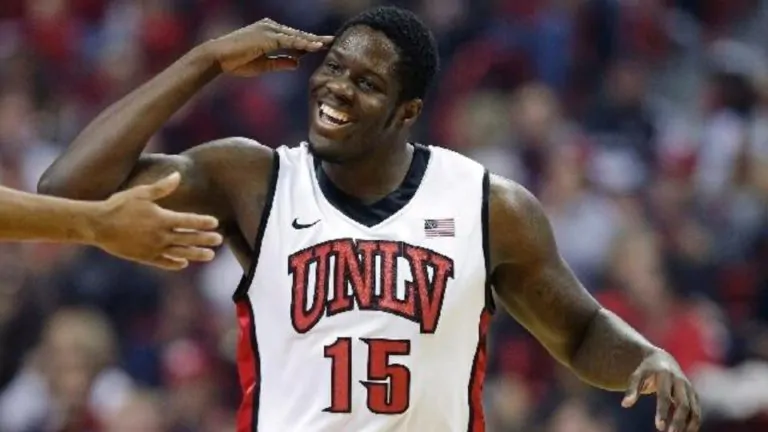Everybody knows that sports are physically demanding. Between practices, strength and conditioning sessions, and games, athletes must be in top physical condition. Athletes are continually thinking about what they can do physically to improve their performance. I wonder how often they think about mental performance?
It's common for athletes to perform flawlessly in practice, but when game day rolls around sometimes their confidence might dwindle, and performance anxiety might creep up. I have experienced this on a fairly consistent basis throughout my competitive equestrian career. Practices seem flawless throughout the week, but on horse show day, my nerves are so high that I can physically feel it. I am certainly not alone in this feeling, as a 2015 NCAA study reports that 30% of NCAA student-athletes report feeling overwhelming distress. Studies have consistently proved that athletes get exposed to sources of stress that non-athletes do not. How do we combat the increased stress levels of student-athletes, and why exactly is an athlete's mental state so important regarding their performance?
To help answer these questions, I had the pleasure of getting on the phone with my good friend Dr. Margie Sugarman, a sports psychologist based in Smithtown, New York, and Wellington, Florida. Margie is an athlete herself, competing throughout the year in equestrian sports. For more than 15 years, she has worked with athletes from the high school level up to Olympic athletes. Margie is primarily a sports psychologist but is also a certified cognitive/behavioral therapist who specializes in a variety of disorders. Margie was able to provide some great insight into what causes sports-related anxiety, how it impacts performance, and what she recommends to combat it. Margie's fundamental approach to tackling performance anxiety lies in mind/body connection. In our conversation, she explains this in great depth, stating that “anxiety is related to the brain state that is getting emitted. The higher the brain state, the higher anxiety will be. When the brain state has a high brain wave, the mind and body aren't connected. This brain wave is not good for the athlete's performance. You can learn how to lower this brain state and put yourself in a brain state where the mind and body are connected.” When asked to elaborate on the ideal brain state and how to get there, Margie asked me an interesting question. She asked me if I had ever watched the Olympics, then asked me if I had noticed anything about what the athletes do before they perform. She proceeded to tell me that the answer lies in the athlete's breathing. “The delta state is the most relaxed brain state you can be in, where you are breathing from your diaphragm. When you are in an anxious state, you breathe from your chest. Athletes do breathing exercises to bring themselves closer to the delta state. When an athlete doesn't breathe properly, the brain state is high and causes anxiety. The more we breathe and oxygenate the body, the lower the brain state goes. Diaphragmatic breathing is so important to clear the mind, bring more oxygen into the body, and allow the athlete to perform much better.”
Margie touched on her own experiences as an athlete and how she applies her practices to her athletic performance. “We have approximately 70,000 thoughts a day, about a thought a second. Many are negative when it comes to athletics. The thoughts that we have are critical. You create your thoughts, your thoughts create your intentions, your intentions create your actions, and your actions determine your reality. What we think impacts what happens, so it's important to find out what the negative thoughts are in an athlete's mind and teach them to turn them into positive thoughts. Making mistakes is human. I try and take my techniques and apply them to myself. Sometimes I have to do it again and again because that's human nature, but knowing what I know has helped me tremendously.” Margie's meticulous approach to performance anxiety provides an in-depth and exciting look into the more scientific side of athletic performance.
I also turned to my fellow athletes to talk about their experiences with performance anxiety, where it stemmed from, and how they handled it. Ally Stanton, a D1 lacrosse player at ECU, spoke to me about her battle with performance pressure. “I have experienced terrible performance anxiety this past season. It was right after I got named preseason all-conference. I put this unnecessary pressure on myself that I had to be perfect and then instead I started getting anxious before every game, and I started almost hiding on the field instead of playing how I normally do, I kind of shut down. Unfortunately, COVID canceled our season, and I never really got a chance to deal with it.” Ally's experience serves to drive home the importance of what Dr. Margie Sugarman had to say about negative thoughts and how they impact one's actions and performance. While setting goals for yourself is a great thing, it is essential that in the process of achieving those goals you allow yourself to make mistakes and do not beat yourself up when you do, because we are human after all.
Austin Rook, captain of the D3 Skidmore College Men's Ice Hockey team, discusses a different kind of performance pressure and anxiety. While he never felt this way playing for Skidmore, he experienced a great deal of performance anxiety in high school surrounding recruitment. “The pressure increases as you get older. During high school, you have to play at your absolute best every game to appeal to college coaches. I tried to enjoy playing and being in the moment rather than being so focused on where I would be going to college.” The pressures of recruiting and performing to the best of your abilities is most definitely a source of stress for high school athletes everywhere. It is enough to make any athlete's palms sweaty and chest tight. As Austin said, it's important to center yourself and be in the moment; relax and have faith that things will work out.
While performance anxiety is natural, it is incredibly important for athletes to deal with these feelings. Whether it stems from self-induced pressure, desire to impress college coaches, or a general fear of failure, it is vital to address what is going on inside an athlete's head to help them combat it and perform to their maximum capability.
Source: NCAA.org
* Originally published on February 1, 2021, by Daphne Mollod
